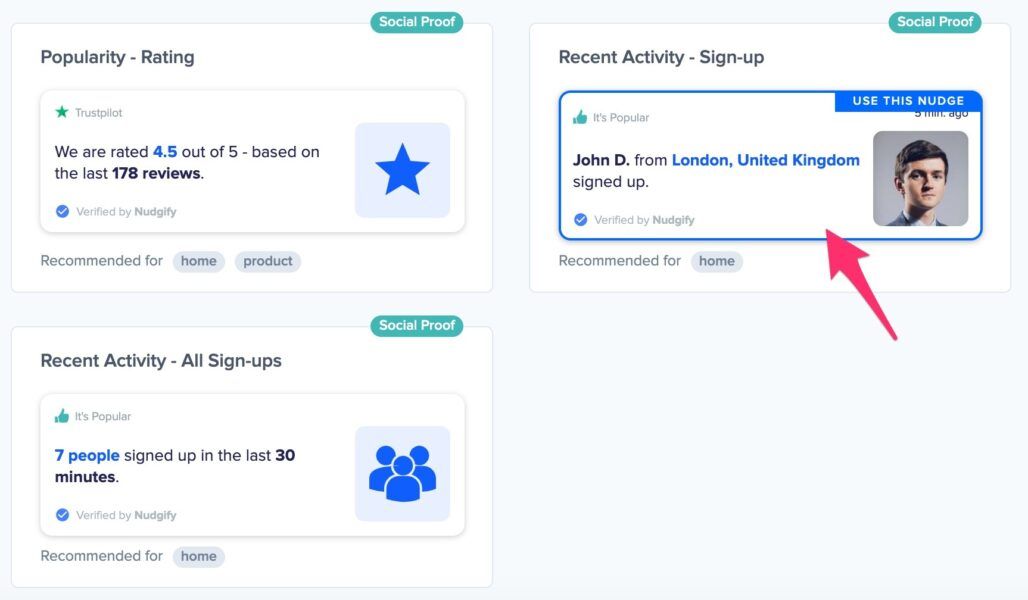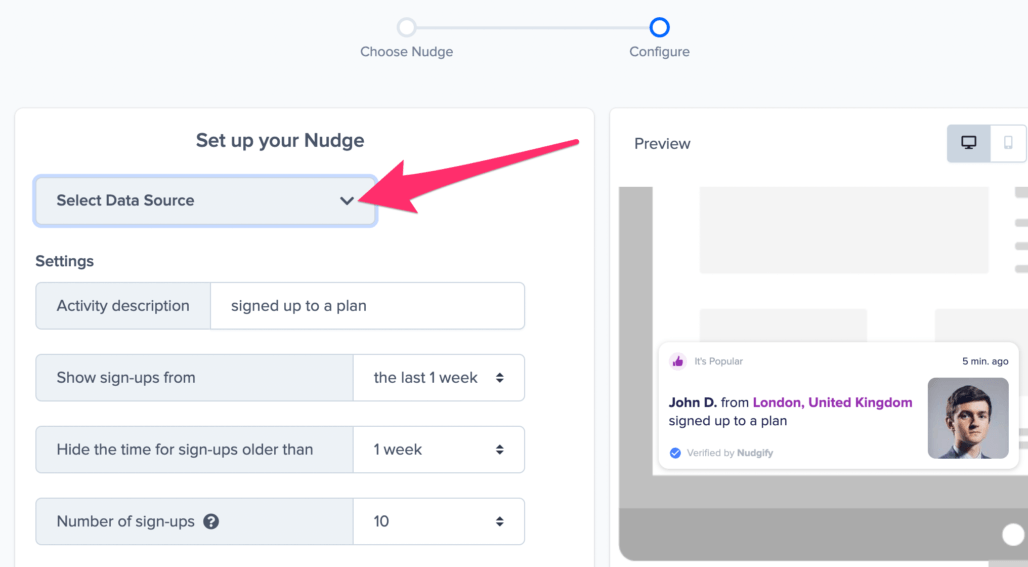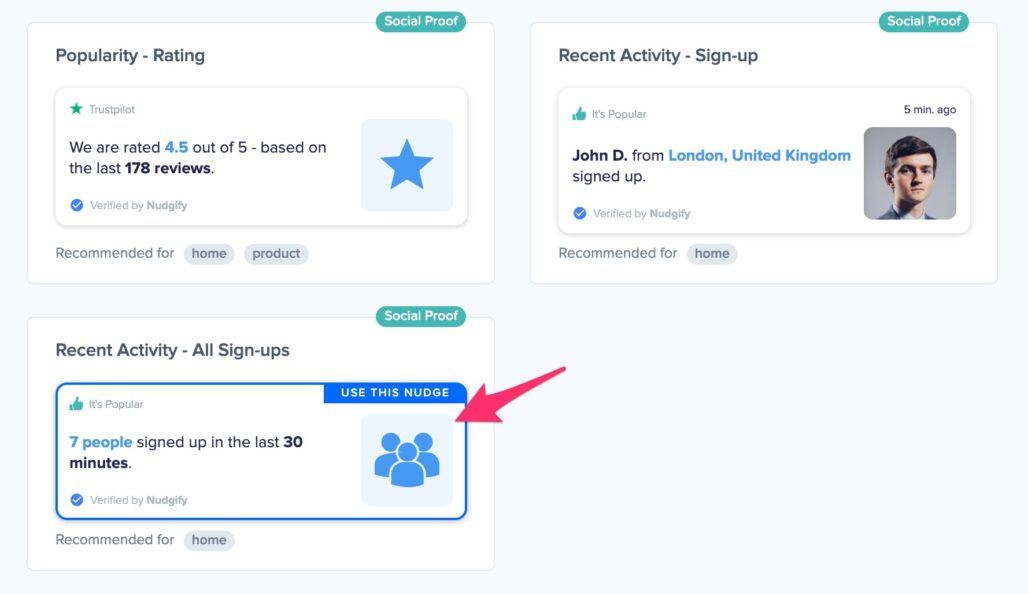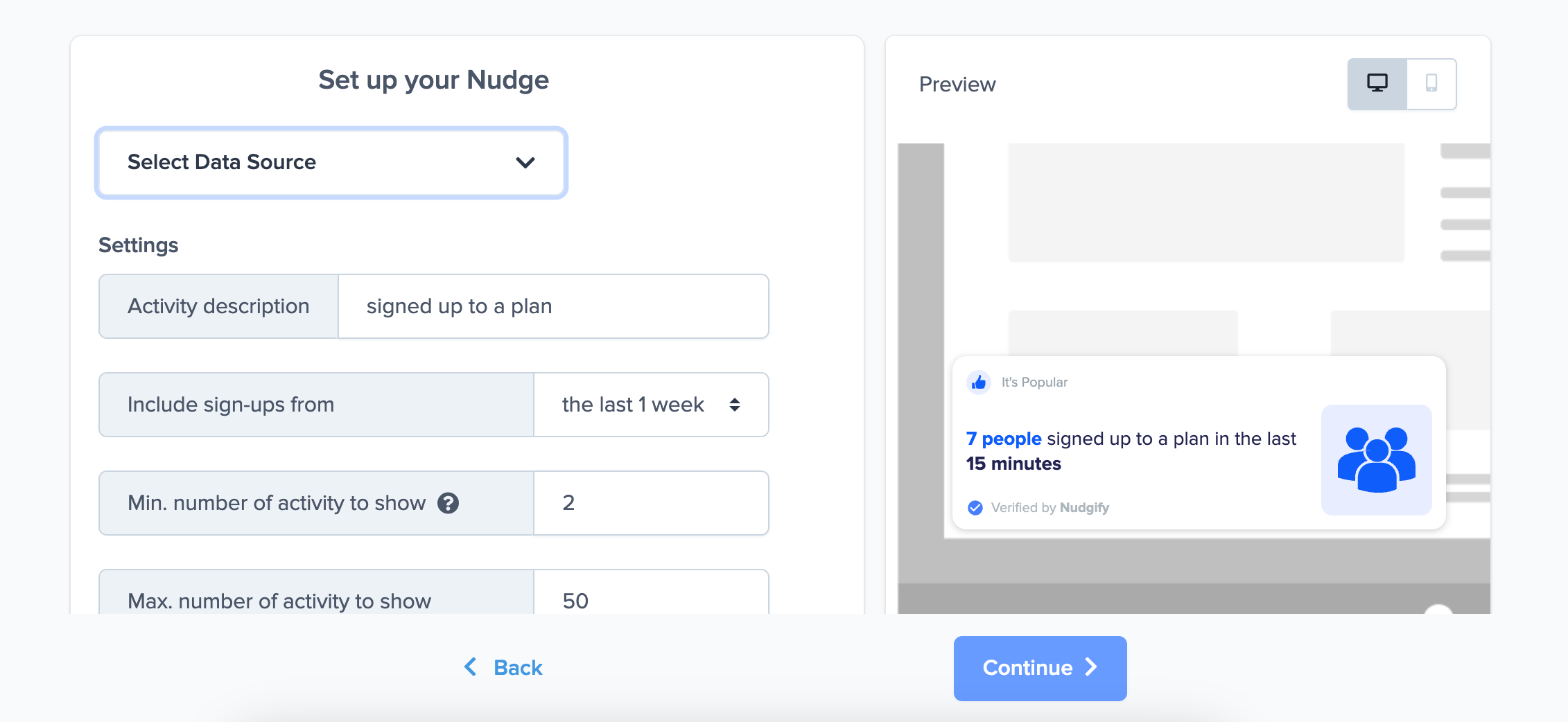Turn your Zoho CRM Sign-Ups into Social Proof
Zoho CRM is an online form builder and data collection tool provided by Zoho Corporation. It enables users to create customized forms for various purposes, such as surveys, registrations, feedback, and more. Users can design forms using a simple drag-and-drop interface without the need for coding skills.
You can easily connect Zoho CRM to Nudgify with our Zoho CRM integration to showcase Social Proof notifications on your website, in real-time.
Connect Zoho CRM Sign-ups
The following data from Zoho CRM will be synced with Nudgify in order to build Nudges:
- First Name
- Last Name
- City
- State
- Country
Follow the steps below to connect your Zoho CRM user data to Nudgify and show new contacts in Sign-up Nudges.
Step 1. Copy Your Webhook URL
To manage your integrations, click the “Integrations” button on the left-hand sidebar. This will take you to the Integrations page, where you manage your integrations with other apps and software. Find Zoho CRM Sign-Ups in the list and click “Connect”.

Click to copy your Nudgify Webhook URL
Step 2. Create a Webhook in Zoho CRM and paste your Webhook URL
You will now paste your Nudgify Webhook URL in the right place in your Zoho CRM account so that new user data is sent automatically to your Nudgify account.
You can find here the Zoho CRM instructions for using Webhooks.
As a summary, follow these steps in your Zoho CRM dashboard:
- Go to Setup > Automation > Actions > Webhooks.
- In the Webhooks page, click Configure Webhook.
- In the New Webhook page, specify all necessary parameters.
- Click Save.
Go back to Nudgify and click the “I’ve done it” button.

Any new Sign-up will be added to your Sign-ups Data Feed. To turn these data into Social Proof Nudges on your site, create a Sign-up Nudge and select Zoho CRM as the data source.
Congratulations! You have now linked your new Zoho CRM sign-ups to Nudgify 🙌
Step 3. Create Sign-ups Nudges for new Zoho CRM Users
On your Data Feeds page, in the “sign-ups” tab, you will be able to see any new contacts that are sent to Nudgify. It’s time to start showcasing new Zoho CRM sign-ups in Social Proof Nudges!
You can create two types of Nudges with the Zoho CRM sign-ups integration.
- Recent Sign-Ups Nudges that show single sign-ups
- All Sign-Ups Nudges that show a count of multiple sign-ups
Show Recent Activity – Single Sign-ups
Go to the Nudges page and click “Add Nudge”. Choose the Nudge labeled “Recent Activity – Single Sign-up” from the Nudge Library.

You can now configure the selected Nudge. First of all, select “Zoho CRM Sign-Ups” as the data source. This way, the Nudge will use your Zoho CRM data to show in the Nudge:

You can also customise the text of the Nudge here (“subscribed to our newsletter”, “signed-up to our mailing list”, or whatever you want to display). You can also select how recent the sign-ups need to be that you want to display. Find out more about the customisation options for Sign-up Nudges.
Once you’re done, click “Continue”. The Nudge will now automatically capture and show individual recent sign-ups. You can track how your Nudges perform from your Statistics page.
Show All Sign-ups
When creating a new Nudge, choose the “Recent Activity – All Sign-ups” Nudge in your Nudge Library:

You can now configure the selected Nudge. First of all, select “Zoho CRM Sign-Ups” as the data source. This way, the Nudge will use your Zoho CRM data to show in the Nudge:

You can also customise the text of the Nudge here (“subscribed to our newsletter”, “signed-up to our mailing list”, or whatever else you want to put down). You can also select how recent the sign-ups need to be that you want to display, and set a minimum and maximum number of Sign-ups. Find more about the customization options for Sign-up Nudges.
Click “Continue”. The Nudge will now automatically capture and show a summary of recent subscriptions. You can track how your Nudges perform from your Statistics page.
That’s it! 🙌
All your new Zoho CRM Sign-Ups will now be turned into powerful Social Proof automatically and display Nudges on your site.
